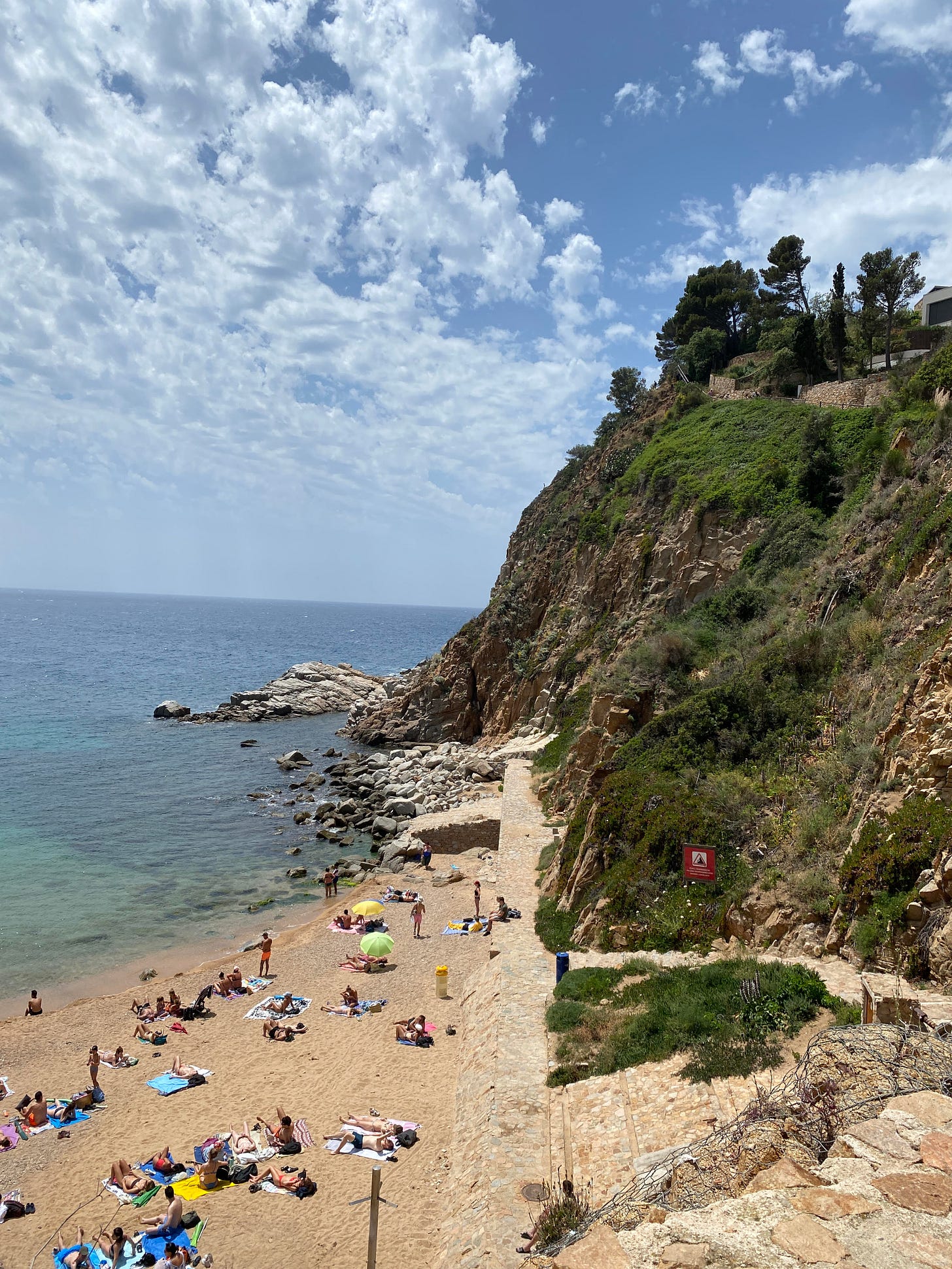Español, The Beautiful Language
Three Point Essay #44 | El lenguaje que me hizo el jefe
Jeff Sullivan’s Three Pointers
I. Motivations
When I was 12 years old I stumbled upon a video of Shakira singing and dancing on YouTube. At that moment I knew I was going to learn Spanish. That’s a joke. Not really though.
I always thought it would be awesome to speak another language. You know, the hero in the movies who is even cooler because he’s bilingual. The James Bond archetype. I'm also from Worcester Mass. Around 20% of the population is Spanish-speaking. I always wanted to know what they were saying.
During little league baseball, we were playing a team of all Dominicans & Puerto Ricans in the playoffs. They played with wild intensity while only communicating in Spanish. Stealing bases, bunting, chanting, and celebrating. Their 3rd base coach would scream something a million miles per hour to his dugout, and the players would respond with even faster, even louder words. The energy was crazy.
Somehow we ended up winning. But I’ll never forget how rattled our whole team was by the enthusiasm imposed on us by the other team.
If only I understood what they were saying…
There was a similar situation my junior year of high school basketball. We were playing Lawrence High in the championship of a tournament. We were good that year. It didn’t matter. They annihilated us with fast breaks and full court defense. All while not saying a word in English. Their fanaticism, all while only speaking Spanish, threw our team off.
If only I understood what they were saying…
Nowadays, I can. Through having conversations every day online and every chance I get in person. But the biggest reason I’m fluent is the best teacher in Worcester: Mrs. Hanna Morris. Having her for ¾ years in high school was a blessing. Spanish grammar and vocabulary will never be able to leave my mind thanks to her. All it takes is one great teacher to change your life.
II. +++
Anyways—Shakira’s beauty, admiring James Bond, and the desire to understand rivals in sports were the big reasons why I wanted to learn Spanish. But there's also less absurd reasons to become fluent in another language.
Number 1 being how incredibile true immersion in another country is. My study abroad experience in Barcelona was even more amazing because I was connecting with people in their own language.
Another reason is that acquiring another language has positive benefits on your brain. One study shows that “bilingualism has been associated with improved metalinguistic awareness (the ability to recognize language as a system that can be manipulated and explored), as well as with better memory, visual-spatial skills, and even creativity.” and that “the improvements in cognitive and sensory processing driven by bilingual experience may help a bilingual person to better process information in the environment, leading to a clearer signal for learning.”
But the most underrated reason how it helps your mental health. This sounds weird, but it’s true:
Learning another language increases the awareness of your own mental processes. Because I’m either thinking in English or Spanish, I’ve become more aware of my own thoughts. I’ve realized how many of them are overly-emotional, impulsive, or irrational. This cognizance has made me a calmer person. Also, because you sound foolish when you first speak another language, you stop taking yourself so seriously. You laugh more. Which makes you happier.
But learning Spanish is not all positives. My barber in Worcester is Puerto Rican. We talk en Español sometimes. One day I was getting a cut and he told me “listen man, if you wanna be with a Mexican girl, you have to fight her family. You’ll have to fight her father, her brother, her uncles, her cousins. You gon’ have to fight everybody dude.” I’m still not sure about the accuracy of that statement. But it was upsetting to hear.
III. It’s Alive
Spanish is now spoken by ~460 (probably more) million people around the world. Around 50 million of those speakers are in the United States. It’s expected that these numbers will continue growing.
How did Spanish rise to this status?
We can trace the origins of the language back to the Vulgar Latin spoken by the Romans. After the fall of the Roman empire, isolation and years of cultural evolution produced the children of Latin—the Romance languages: Spanish, French, Italian, and Portuguese.
In the 1400 & 1500s the Kingdom of Spain became a global power. The empire spread their language throughout the world. It became the dominant form of communication in many parts of the Americas, and still is.
Today, the language has many dialects, accents, and variations. But they are all still mutually intelligible—they can all understand each other, despite how different they sound.
Some major ones include:
Spain Spanish (Castellano or 'The OG')
Mexican Spanish (Mexicano)
Colombian Spanish (Hermosa)
Puerto Rican Spanish (‘The Bad Bunny accent’)
Argentinian Spanish (‘The Champion dialect’)
& many other countries in Central and South America.
Spanish continues to advance worldwide (because of how fun it is to use?) If you’re curious about learning it, don’t hesitate to reach out. As you can see from this article, there’s plenty of reasons to go for it.



ORALE-JIM
I saw your teacher at church this morning. She's not only a great teacher, she's a wonderful person.